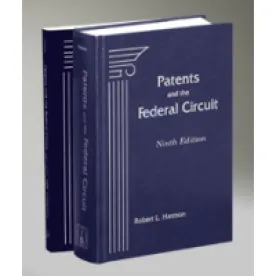For more than two decades, the Federal Circuit has held that correspondence alone from a patentee to a possible infringer would not subject it to personal jurisdiction in any declaratory-judgment action the alleged infringer might file in its “home” jurisdiction.1 In Trimble, Inc. v. PerDiemCo LLC,2 the Federal Circuit seems to have changed course.
In Trimble, over the course of several months, the patentee communicated with the alleged infringer at least 22 times by letter, email, and telephone. The alleged infringer then filed suit for declaratory judgment of non-infringement in the Northern District of California, where it is headquartered. When the patentee filed a motion to dismiss, the district court held that it lacked personal jurisdiction over the patentee because an exercise of such jurisdiction based solely upon the communications in question would be “constitutionally unreasonable.”
The Federal Circuit reversed the district court’s decision on appeal. Foundational to that reversal was the court’s conclusion that Red Wing Shoe “did not create a rule” that “patent enforcement letters can never provide the basis for jurisdiction in a declaratory judgment action.”3 In Jack Henry, the patentee had sent communications to 11 banks located within the forum, alleging patent infringement and threatening litigation. Further, as the court in Jack Henry noted, the patentee’s only business was “licensing and litigating its patents.” The court in Trimble noted the same characteristic for the patentee in that case as well.4
Regardless of whether the more recent decisions in Trimble and Jack Henry are consistent with Red Wing Shoe, those latter decisions provide a cautionary tale for patentees seeking to negotiate with potential infringers prior to the initiation of infringement litigation. While the patentees in Jack Henry and Trimble were non-practicing entities, and the decisions in both cases appear to have turned at least in part on that fact, it is not clear if subsequent decisions will be limited to such circumstances. This is especially true given the Federal Circuit’s reference in Trimble to decisions by “sister circuits” that “communications from outside the forum can form the basis of personal jurisdiction” in non-patent contexts.
In light of this uncertainty, patentees must take care in correspondence with potential infringers to avoid inadvertently giving rise to personal jurisdiction in a particular forum. In particular, engaging infringers in lengthy negotiations, even remotely, runs a heightened risk of creating personal jurisdiction where none would have existed otherwise. One stopgap measure that a patentee might employ is to file, but not serve, a complaint, and then employ the 90-day service period of Fed. R. Civ. P. 4(m) for negotiations with the defendant. This would typically allow the patentee the benefit of the “first-to-file” rule in the event of a subsequent declaratory judgment action.5 Another option is to propose that any negotiations take place in the patentee’s home forum. Finally, a patentee could ask for a written undertaking that the fact of negotiations will not be used for any purpose outside of the negotiations themselves, including as a basis for personal jurisdiction.
Footnotes
1 See Red Wing Shoe Co. v. Hockerson-Halberstadt, Inc., 148 F.3d 1355, 1361 (Fed. Cir. 1998) (“cease-and-desist letters alone do not suffice to justify personal jurisdiction”).
2 App. No. 2019-2164 (Fed. Cir. May 12, 2021).
3 Trimble, App. No. 2019-2164 at 11 (citing Jack Henry & Assocs., Inc. v. Plano Encryption Techs. LLC, 910 F.3d 1199, 1206 (Fed. Cir. 2018)).
4 Non-practicing entity status has not been determinative as to personal jurisdiction based solely on correspondence within a forum. In Overstock.Com, Inc. v. Furnace Brook, LLC, the District of Utah dismissed a complaint for lack of personal jurisdiction based upon a non-practicing entity’s correspondence within that judicial district, and that decision was affirmed by the Federal Circuit. Overstock.Com, Inc. v. Furnace Brook, LLC, 420 F. Supp. 2d 1217 (2005), 191 F. App’x 959 (Fed. Cir. 2006).
5 Merial Ltd. v. Cipla Ltd., 681 F.3d 1283, 1299 (Fed. Cir. 2012). On a related note, even if a declaratory judgment action were filed first, a presiding court might exercise its discretion not to retain jurisdiction in the face of a later-filed infringement suit. Commc’ns Test Design, Inc. v. Contec, LLC, 952 F.3d 1356, 1366 (Fed. Cir. 2020).




 />i
/>i
